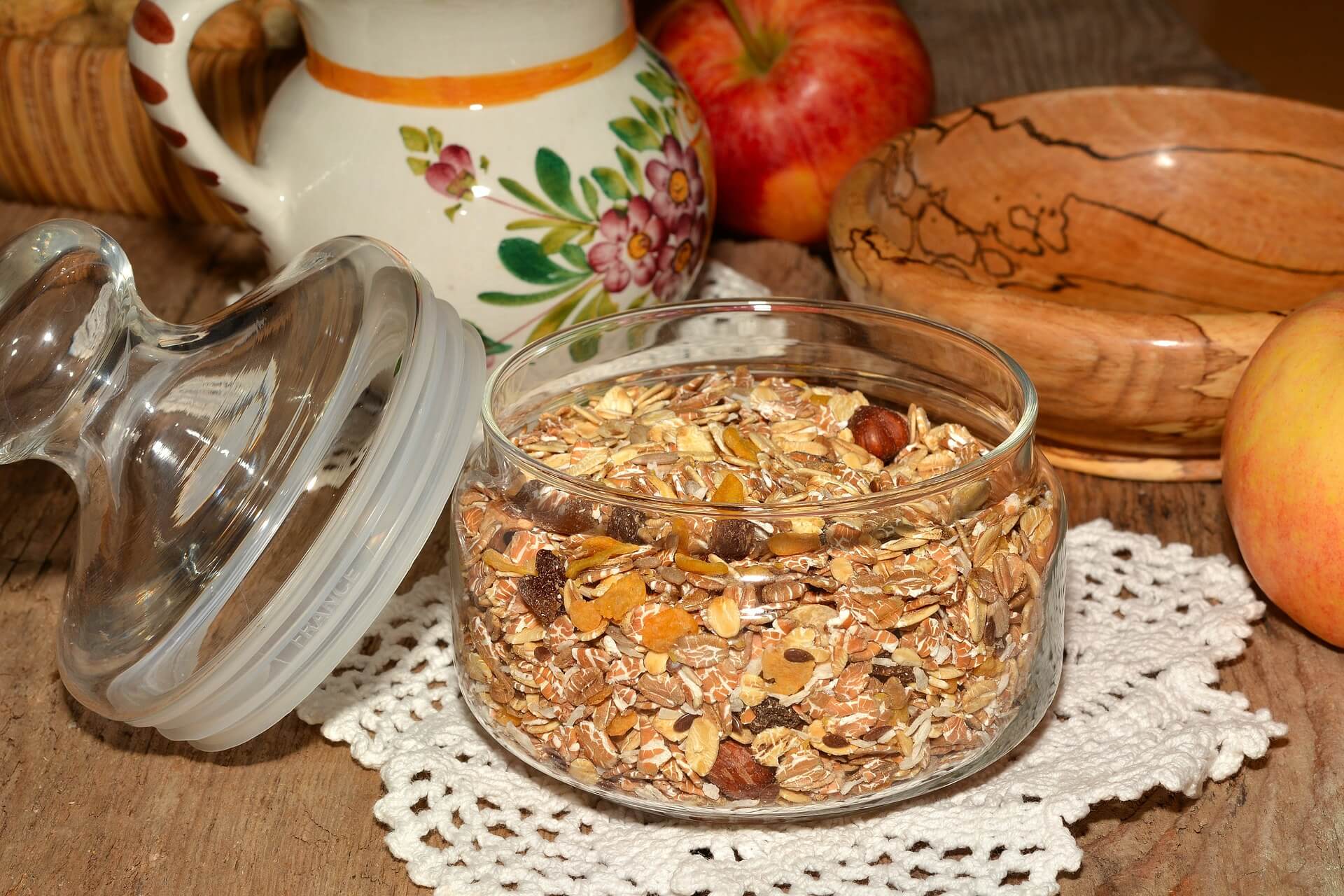How To Find Balance In The Most Intense Season Of The Year
Like most of us, I love the spring and summer months, especially the big sun, green life, and freedom of movement that the summer provides us. But I have long observed the season’s shadow and its implicit message, which is caution. The summer months bring forth extremes of heat, humidity, and fiery temperaments – all of which can lead to conflicts, accidents, and illnesses. The message in the season is simple and absolute: be cool and know that you are playing with fire.
In the Five Element system, which is the foundation of Traditional Chinese Medicine, the sages of old described the summer as the fire season. This is the time of the year when hidden trends, implicit conditions, and long repressed frustrations tend to rise to the surface and are revealed to us. Some of what was buried in winter starts to become visible in the spring. By summer, the rising energy reaches its zenith and brings that which was hidden and lay dormant in previous seasons.
Much of what appears is beautiful – green life, flowers, fruit, new opportunities, new love, and a deepening of mature love. The opposite also can be true. Like fire, challenges can arise suddenly and become acute. Often, we are forced to face issues and situations that we have long postponed or denied. The Greeks had a name for one of the primary driving forces behind these challenges. Inflammation, they called it, or the fire within. The fire within us can be regulated, or made more intense, by the fire that we consume in the form of food and alcohol. It can be further moderated or increased by our cooking methods. And then there are all those incendiary events in our environment that can turn up the heat inside of us even further – namely, conflicts in our close relationships, at our work, or in social situations. All of these influences – from our food and emotions, to our work and social life – can fuel the fires within us and thus affect our judgment and virtually all areas of our lives.
We see the impact of these influences in every segment of our world. Consider the following, for example:
- As temperatures rise, so do the crime rates – especially violent crimes – throughout the world. In Fort Wayne, Indiana, for example, police receive an average of 12,000 more calls per month between May and July. Most of those additional calls are for help with violent crimes. In otherwise law-abiding Norway, the peak month for violent crime is June. Violent acts start increasing in May and continue through the summer months until they fall off in autumn.
- Most people have the false impression that suicide rates peak in the winter months, when many people are afflicted with a form of depression brought known as Seasonal Affected Disorder (referred to as SAD). In fact, suicide rates begin rising in the spring, when the sun is out and the days are longer, and continue to increase throughout the late spring and summer months, according to a study conducted by Australian researchers and published in the American Journal of Psychiatry (2003; 160:793-795). The lowest suicide rates occur in December, the journal reported.
- According to a 2007 study published in Forbes magazine (January 21. 2009), the most dangerous month for traffic accidents in the U.S. is August; the second most dangerous is June.
- The highest number of hospital admissions in California occurs between May and September. Among the primary cause of those admissions are the inflammatory illnesses, such as heart disease, diabetes, and stroke. This same trend occurs in places throughout the world.
- The oil spill in the Gulf of Mexico reveals the underlying forces within nature and the season. The catastrophe was touched off on April 20, when an oil rig exploded and started releasing great quantities of oil into the Gulf waters. As late as May 18, however, BP executive Tony Hayward announced that the environmental impact of the spill would be “very, very modest.” It wasn’t until later in May that BP executives started to come clean, and not until June that we began to know the full extent of the catastrophe. As of this writing, much of the U.S. and the world is in a state of frustration and panic over the environmental effects of the spill.
The forces within the season have to be respected and learned from if we are to live in harmony with nature. To do otherwise is to risk touching off a fire within us that results in physical, emotional, psychological, and behavioral changes that can lead to crisis.
There is much we can do to stave off these effects of fire and inflammation, however. Here’s how.
What To Do
The first thing we have to think about is our food and preparation methods. Let’s begin by looking at our food choices.
- Eat the green.
Summer is the yellow of the sun and the green of the earth. By providing an abundance of green and leafy vegetables, nature is giving us exactly what we need to remain balanced and protected from the extremes caused by the season. Greens are medicinal any time of the year, but they are especially important in summer.
One reason greens are so essential is that they are cooling. Some greens, especially those with bitter flavor, not only cool the system, but also dry out excess moisture. Greens that are pulpier and sweeter in flavor tend to cool and moisten.
Those who suffer from chronically dry coughs, or do not sweat much, or experience constipation (especially dry stools) benefit most from greens that sweeter and moisten, as opposed to bitter and drying.
Conversely, those who sweat easily and profusely, have lots saliva, or have loose stools, tend to have more moist conditions and benefit from bitter greens that cool and dry.
Green vegetables, of course, also carry oxygen and open us, especially the upper part of the body, such as the liver, lungs, and heart.
Greens that cool and dry
Arugula
Broccoli rape
Chives
Cilantro
Dandelion greens
Kale
Leeks
Mustard greens
Parsley
Greens that are cooling and moistening
Asparagus
Bok choy
Broccoli
Bean sprouts
Celery
Collard Greens
Escarole
Lettuce
Scallion
Spinach
Swiss chard
Watercress
Eat lots of other vegetables that do not fall in the green and leafy category, but nonetheless provide exceptional cooling effects, along with lots of nutrition. Here is a short list of great cooling foods for summer.
Artichoke
Cauliflower
Cucumber
Mushrooms, including button and shiitake
Pepper, bell
Sweet potato and yams
Summer squash
Tomato (infrequently, and in small amounts. Tomatoes are highly acidic. See June 2009 Tom Monte Monthly, the Enigmatic Tomato.)
Zucchini
(For a more extensive list of cooling and warming foods, along with a indepth presentation on the overall effects of food on health, see Steve Gagne’s wonderful and highly recommended book, The Energetics of Food. 2006. For more on Steve and his book, log onto www.stevegagne.com.)
- Eat the cool foods and you’ll be cool, too.
In summer, we tend to eat more expansive and cooling grains. One of the more important changes is to go from short grain brown rice to medium and long grain rice, and to include more basmati rice, all of which are more expanding, relaxing, and cooling.
Barley is a spring grain and has long been used medicinally to treat the liver. Barley can be used in salads and soups and can have a relaxing and expanding effect on the body.
Grains that are grown in especially hot climates, such as quinoa (South America) and millet (Africa and the Middle East) tend to be warming. But these grains can be prepared with lots of cooling vegetables, such as scallion, carrots, celery, and leeks, to make them much more appealing in summer.
Sea vegetables (also known as seaweeds) are all cooling, thanks in large measure to their abundant supply of minerals. Include cooked sea vegetables as side dishes and as part of salads.
Include lots of other cooling vegetables
Other cooling vegetables
Beans
Sea vegetables
Beans
Salads and raw vegetables
Fruit, especially berries
- Reduce and avoid extremes in food, especially foods that turn up the heat.
Foods that have a contracting effect on the body tend to close us down, reduce circulation and increase inflammation. Red meat is a highly inflammatory food. When it is grilled, as it often is in summer, red meat can have an intensely contracting and enflaming effect. As inflammation rises, circulation is reduced throughout the body, especially the heart, lungs, and liver. People who grill meats not only are prone to heart attacks, especially in summer, but also to various forms of cancer.
Reduce or avoid chicken, which creates heat throughout the body, especially in the liver. The more the liver becomes distressed, the more inflammatory compounds it generates, including LDL cholesterol, homocysteine, and fibrinogen.
In place of red meat and chicken, eat white fish, which is cooling and moistening.
Avoid intense and hot spices, which can disrupt the liver, heart, and digestion, and instead use small amounts of the more gentle spices, such as basil, thyme, cumin, tumeric, pepper, ginger, and garlic. While these spices may seem to create small amounts of heat, in fact they improve circulation and thus transfer heat to the skin in the form of perspiration. From there, the heat is eliminated from the body.
Be moderate, especially in alcohol consumption. A Finnish study reported that 80 percent of all violent crimes involved alcohol intoxication, according to a report published in the June 3, 2009 edition of Science Daily. Alcohol poisons the liver by raising fatty acid levels and glycogen. As the liver becomes more toxified, we become increasingly angry and uninhibited with our emotions – a dangerous combination. Summer is associated with an increase in alcohol consumption and, for many, intoxication. Not surprisingly, there is also an associated increase in abusive behavior and violence.
Avoid or, at the very least, limit consumption of sugar and sweet dairy products. Both increase inflammation and thus lead to imbalances in physical health, emotions, and behavior.
- Wise Cooking.
Lighter and more short-term cooking is the order of the season. Short-term boiling, steaming, and sautéing are ideal in summer.
Use less oil than you do in winter. Oil carries heat and transmits it to your body. Also, use more raw oil, especially olive oil and toasted sesame oil.
Avoid grilling, pressure cooking, and frying. These forms of preparation have a contracting effect on the body and will increase inflammation.
- Avoid extremes in emotion – even extremes of joy.
Be wise and temperate with your emotions. Avoid going on emotional rollercoaster rides. As every parent and child know, extreme emotions – even happy ones – lead to their opposite. One minute you’re laughing your head off, the next you’re crying. Too much celebrating leads inevitably to hysteria, conflict, anger, and strife. Be temperate and suspicious of over-joy.
Most important, beware of prolonged anger. It leads inevitably to explosions of emotion, conflict, and even violence, especially in summer. Resolve conflicts as quickly as you can. If you cannot resolve highly emotional conflicts, than do your best to withdraw from intense situations. The more heated the discussion or argument, the more likely it is that one or more people are going to get burned.
In general, we strive to be soft and open on the outside, and strong and centered on the inside. This is especially important in summer. Find your heart, be soft, open, and express your love gently and intimately.
- More rest.
All traditional cultures see the summer months as a time for more rest and more time on holiday. Most of the people living in Italy take much of August off. In Spain, people routinely take a siesta every afternoon. As much as possible, we have to mimic these wise traditions. Take frequent breaks in the summer to cool down, relax, and open to your life and surroundings. Even if you cannot go off for an exotic holiday, find ways to get away from the intensity and stresses of your work. Rest is not a waste of time, as so many over-worked people believe. Rest is healing for the body, mind, and soul.
- More play.
Play is physical escape from the fires of adult life. Play gets us out of our heads and into our bodies, where our instinct for fun, health, and appreciation for life can return us to the simplicity and sanity of ordinary life.
A walk in the park can be play. A night on the town is play. An hour or two of tennis, golf, swimming, hiking, fishing, singing with your stereo on, drawing and coloring, painting, and gardening – all of these and much more can be play. Play every week in the summer. Your heart will open and heal you in a multitude of ways.
Remember that all forms of extremes are dangerous, especially in summer. Extreme foods lead to sickness. Extreme anger leads to regret. Extreme joy leads to sorrow. Extreme sorrow leads to despair and depression.
Extremes in any area of life – especially in food and emotion — take us away from ourselves. We lose connection with the subtle energies that are truly who you are. Your intuition, your connection with yourself, and your Source, depend on your ability to experience and align yourself with the modest and gentle waves that exist in your heart and soul. These energies are a gateway to a deeper reality that all of us pursue.






